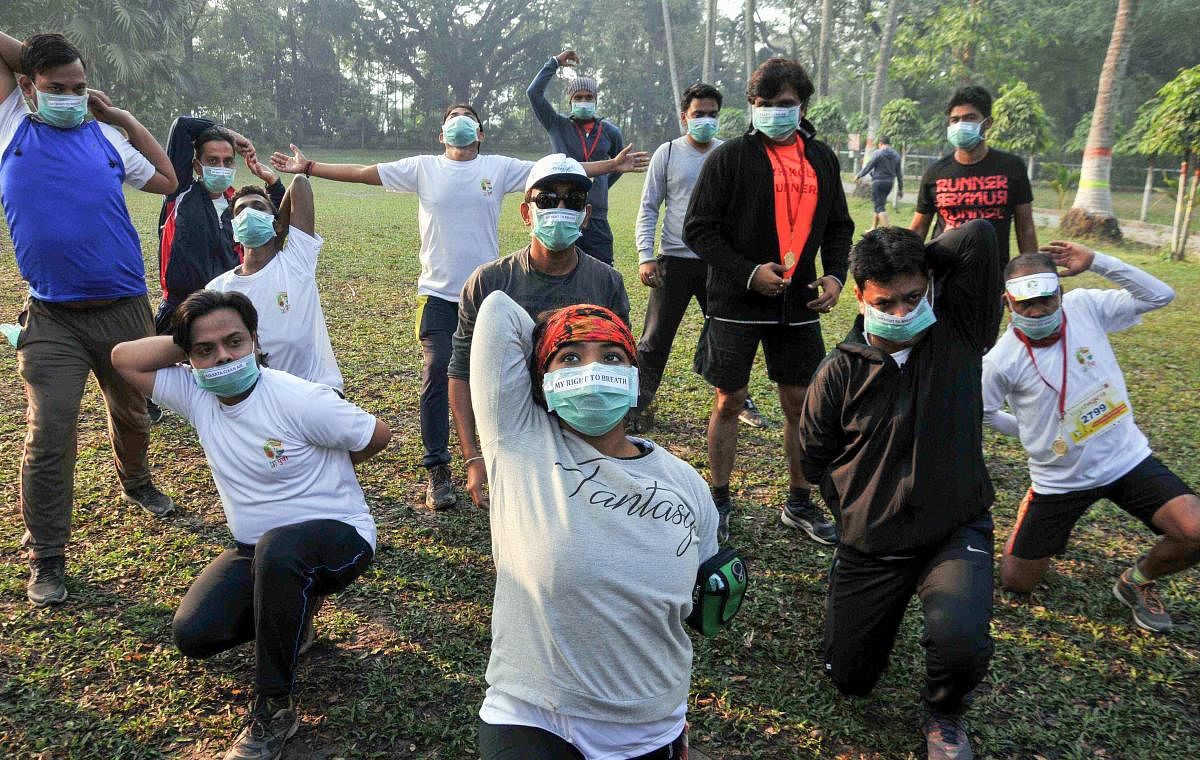
Earlier this year, India submitted an official interest to bid for the 2032 Summer Olympics – a huge opportunity for athletes in a nation where results have never matched potential, mostly because of abysmal funds, facilities and management. The Indian Olympic Association has also said it is keen on hosting the 2021 IOC Congress, the 2026 Youth Olympic Games and the 2030 Asian Games. Amidst the nation’s aspirations of a historic medal tally, one invisible factor threatens to compromise the performances of the athletes on whom these dreams ride – air pollution.
The host factor boost for India
Hosting the Olympics is an attraction for nations for many reasons. It motivates them to improve infrastructure, environment and hospitality for the benefit of the visiting contingents and tourists. The Olympics were a trigger for China to clean up their air, Japan is making efforts to make the country more accessible to English speaking tourists.
However, a bigger motivator for countries to bid for sporting events is improving their own performance. Hosts have traditionally raked up higher medal tallies than what they would have just as participants. This comes from the increased attention and investment towards athletes as well as infrastructure. Studies by Daniel KN Johnson and Afyer Ali show that host nations win an average of 24.8 more medals than not host nations, while Andrew Bernard and Meghan Busse say that hosts win an additional 1.8% of medals.
Assuming this holds true for India too, the country will be looking at this as an opportunity to improve its dismal record at the Olympics. The country has won a total of just 28 medals – nine gold, seven silver and twelve bronze in the 24 games it has participated in. The country’s best haul was at the 2012 games in London with six medals, while last year at Rio we only managed two. Despite being the second populous country and sixth largest economy, we have the worst Olympics record in terms of medals per head, with countries like Grenada and Jamaica getting a medal for every couple of hundred thousand people.
What’s air gotta do with it?
Air quality impacts the health and performance of athletes disproportionately, both during training as well as competing. Breathing better, which means more oxygen being absorbed by the body, is vital for sports performance. A person breathes 12-20 times per minute in the normal state, while during exercise this goes up to 30-40. As a result, when the air quality is bad, the air pollution dosage for those exercising is much higher because of higher breathing rates. Studies have shown that the combination of exercise and pollution cause constrictions in the bronchus and reduced ventilatory flow. The growth of lungs in children exposed to pollution is 15-20% lower. In highly competitive events like the Olympics, where milliseconds and millimetres determine wins, this means that athletes training in polluted environments are at a serious disadvantage. Other physiological shortcomings can be overcome with food or training, but reduced lung function has no cure, unless you include EPO doping (made infamous by Lance Armstrong). Reduced lung function effectively means reduced chances of medals.
Award winning marathon runner Paula Radcliffe is a UN Environment Advocate for Clean Air. She has suffered from exercise-induced asthma from the age of 14, and speaks extensively of its high prevalence in elite sportspersons. Since 1970, the percentage of athletes suffering from asthma has increased from 3% to 23% for summer sports and from 12% to 50% in winter sports. In 2004, while the prevalence of asthma was at 4% for the general population of Great Britain, it was at 24% for the team, she says.
India’s air is notoriously bad – of the 10 most polluted cities in the world, seven are Indian. Every year 1.2 million people die due to bad air, and there are 102 cities in the country where the air quality exceeds national standards. These include the four potential host cities for the 2032 Olympics – Delhi, Mumbai, Bangalore and Bhubaneswar. These also include cities where our athletes live and train, exposing them to high levels of pollution, rendering their bodies vulnerable to its health impacts and leaving them at a serious disadvantage to their counterparts who live and train in cities with clean air.
The results for the bids for 2032 Olympics are expected to be announced in 2025. Air quality will be an important consideration when the bids are evaluated. It would help if the Indian government walks the talk and puts in place stringent measures in the next 1-2 years to show that they take air quality seriously, rather than make promises after (and if) the bid is won.
Of course irrespective of whether we win the bid or not, for the sportsmen and women who have started, or are going to start training for 2032 Olympics, clean air will be the big differentiator!
(Yogesh Ranganath and Asavari Raj Sharma are part of Clean Air Platform – a collaborative group working to improve Bangalore’s air quality)
The views expressed above are the author’s own. They do not necessarily reflect the views of DH.